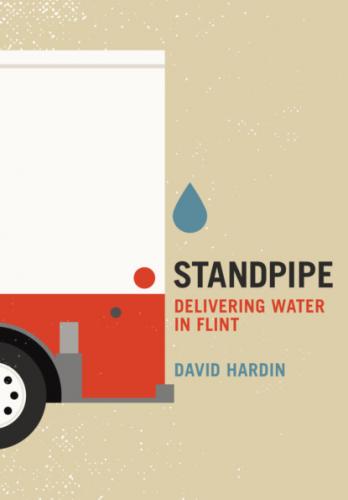Hamtramck, Michigan. Encapsulated by the City of Detroit, urban beetle in amber. Historic gateway to immigrants from central and eastern Europe, Appalachia, the Ozarks, and, over time, the Middle East—late, from Africa and east Asia and pioneering suburban kids seeking cheap studio space. My parents took a flat on Caniff, near Joseph Campau Avenue, sharing a bathroom with an older Polish couple, the Geibors. Ornate Catholic churches, Polish social clubs, and unassuming shot-and-a-beer bars abounded. The sprawling Dodge Main plant dominated the neighborhood.
She may have fantasized about life as that latter song’s free-spirited namesake. I remember her dancing and popping her fingers. She’d vamp, twirl around the room to Arlen and Mercer’s “Blues In the Night”—probably the Rosemary Clooney version—pantomiming the chanteuse, thin dowel of a red Tinker Toy standing in for a saucy cigarette. She was a drop dead-ringer for Patsy Cline. They were the same age, Tennessee gals born eight days apart.
One night in 1963, she returned from Kresge’s with a big surprise; a forty-five of “I Want To Hold Your Hand”—“I Saw Her Standing There” the B-side. I can still see the orange and yellow Capital swirl spinning hypnotically on the little turntable. We stood there for a moment, transfixed, my mother, brother, and me, stung by the sublime revelation of the Beatles. Once my father abandoned the field for the basement, we Twisted our asses off like Chubby Checker, lighting fresh Tinker Toys off the stubs of the old.
FIFTEEN
Over the weeks and months, I encounter more than a few people who have had their water cut off for not paying their monthly water bill. People who have no choice but to go on living in their home. I’m curious to know how they manage, maintain some minimum level of hygiene, let alone sanity, but dare not ask the question. Flint and Genessee County had some of the highest water rates in the state prior to the water crises. High rates levied by the Detroit system, coupled with an unfinished pipeline project from Lake Huron connecting to a new regional water treatment facility, contributed to the decision to draw water from the Flint River in the first place.
Everyone I speak with complains bitterly of the devil’s bargain they’ve been handed—forced to pay high water and sewage rates in exchange for an essential service that dooms their children to a life sentence of brain damage, exposes everyone in the house to potentially fatal illness, and destroys the hard-won value of everything they have worked and sacrificed to achieve. Most pay, though they can ill afford the burden. Money for lead-tainted water means less money for things like food, rent, and prescription drugs. Never mind transportation, clothing, and cable. Medical care? Forget it. Various programs exist to help those in need. The governor pressures GM to reconnect with the municipal system, in order to bolster tax revenue. Revenues do, in fact, increase, but are woefully insufficient to pay the cost of replacing pipes system wide. The pipeline from Lake Huron is eventually completed, but Flint won’t be granted representation on the Great Lakes Water Authority Board until 2019 .
Throughout the crisis, many continue to use water from the tap, run through commercial filters we hand out for free. Absolutely no one I speak with believes the free faucet filters are safe and effective. Boiling is a common, but ineffective practice, as are brief showers or sponge baths that limit exposure to toxins. Pets are at risk. Basic functions like brushing teeth, cleaning wounds, washing hair, doing laundry, washing dishes, keeping babies fresh, take on new, upsettingly onerous dimensions. Food preparation, of course, has been transformed into a tedious, time-consuming exercise in opening and emptying dozens of plastic bottles. Now and then we stop for coffee. I half convince myself that McDonald’s is scrupulous in their water filtration regimen. I’m amazed, as the long, hot summer progresses, that Flint’s residents don’t resort to acts of civil disobedience or defiantly take to the streets to express their frustration and rage at their predicament. Attempts at mollification by the authorities, at this point, seem such an affront to dignity as to be morally indefensible.
SIXTEEN
For a couple of months, my time in Flint and summer vacation overlap. I regularly encounter children playing in homes or out in the yard, curious about these strangers stacking cases of water in their kitchen and living room. How to explain to a child that something so benign as tap water, so universal a symbol of growing up in these United States, a necessity everyone takes for granted, has been transformed into a dire threat, poison from the spigot, kitchen faucets malign and gleaming?
Everyday experiences are processed and stored in the brain as memory. Research suggests that trauma isn’t integrated into memory at all, but lives on, ever present in the moment, locked within the body. In fifteen, twenty, thirty years, how will the water crisis be remembered by these children, grown to adulthood? How will they cope with neurological damage caused by exposure to toxic levels of lead? What about the cost to society? To taxpayers, saddled with the burden of underwriting an increased need for health care, mental health services, special education, law enforcement, and incarceration? In what ways will trauma betray these kids and reemerge flaring, filtered through the experience of having grown up in Flint?
Конец ознакомительного фрагмента.
Текст предоставлен ООО «ЛитРес».
Прочитайте эту книгу целиком, купив полную легальную версию на ЛитРес.
Безопасно оплатить книгу можно банковской картой Visa, MasterCard, Maestro, со счета мобильного телефона, с платежного терминала, в салоне МТС или Связной, через PayPal, WebMoney, Яндекс.Деньги, QIWI Кошелек, бонусными картами или другим удобным Вам способом.
